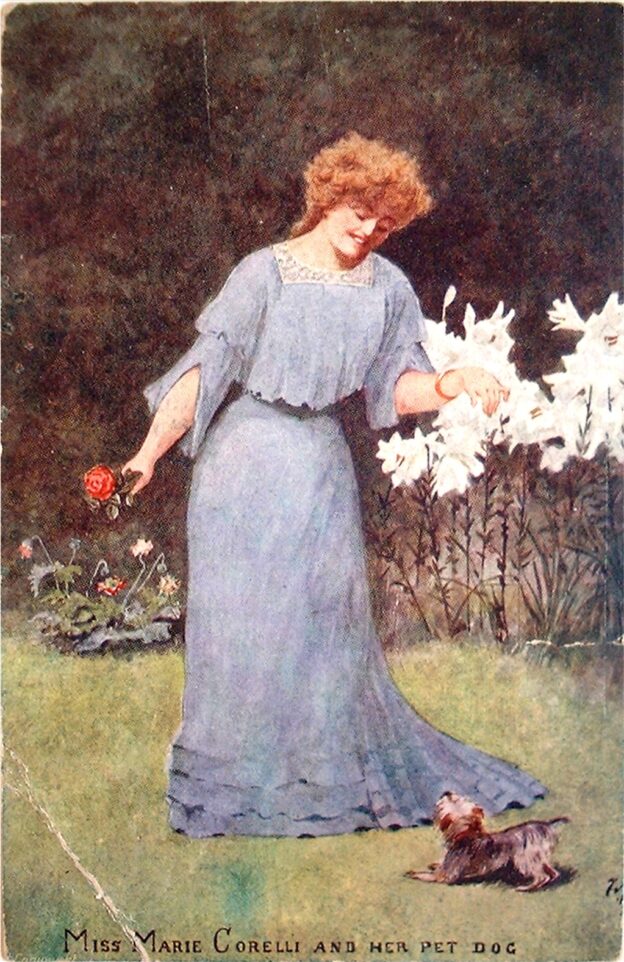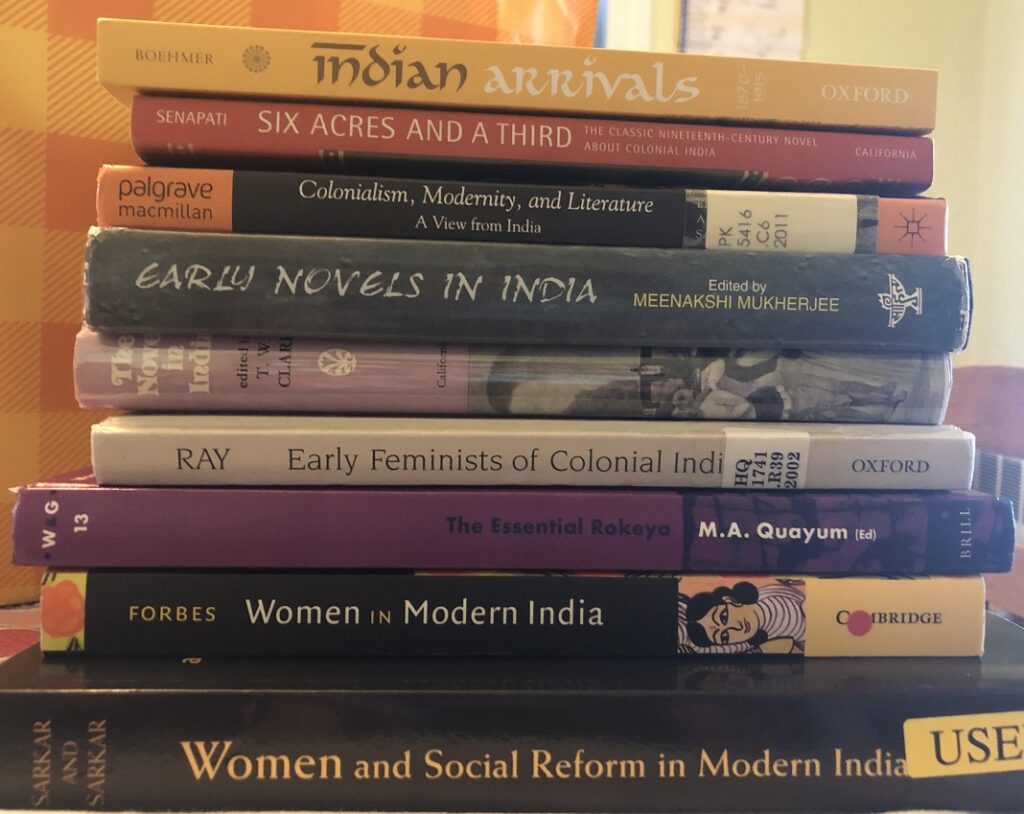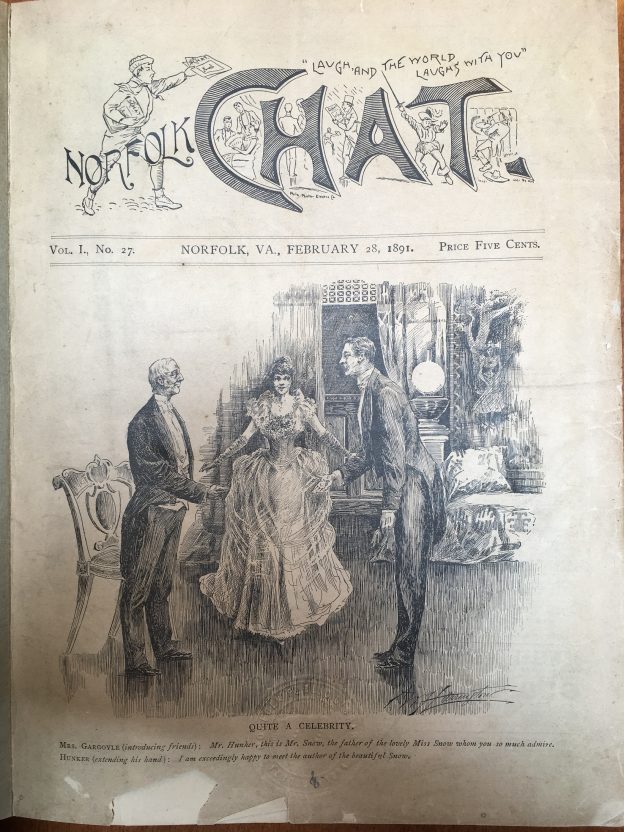At this point in July every year I (by which I mean all academics) start to panic that summer is nearly over. I have approximately six weeks before course prep/teaching recommences. I have been enjoying a lot of time poolside. I’m trying to talk myself into reading something serious rather than all the mystery fluff I seem to favor on teaching breaks. And maybe I’ll clean up my sewing room and sew some things.
I have also been plugging away at book chapters. I was excited to see Joanna Turner’s timely essay in Victorian Popular Fiction, giving us new information about Marie Corelli’s background. I’ll definitely be citing this in my chapter on The Murder of Delicia.
For one of my chapters on Rokeya Sakhawat Hossain’s work, I read Swarnakumari Debi’s Kahake (which she translated into English in 1913). This story was so compelling (and I don’t appreciate romance, usually)–it raises the question why is her work, popular in its time, so overshadowed today by that of her younger brother? (I’m talking about Nobel-winning Rabindranath Tagore here… echoes of Woolf’s speculations about Shakespeare’s sister… ) I wish all Swarnakumari’s novels were translated, or (once again) that I could read Bengali. She was formidable: she started writing novels in her teens (already a mother of four) and also edited the literary magazine Bharati for thirty years. Folks wishing to broaden our conception of Victorian Studies should look into this author!



